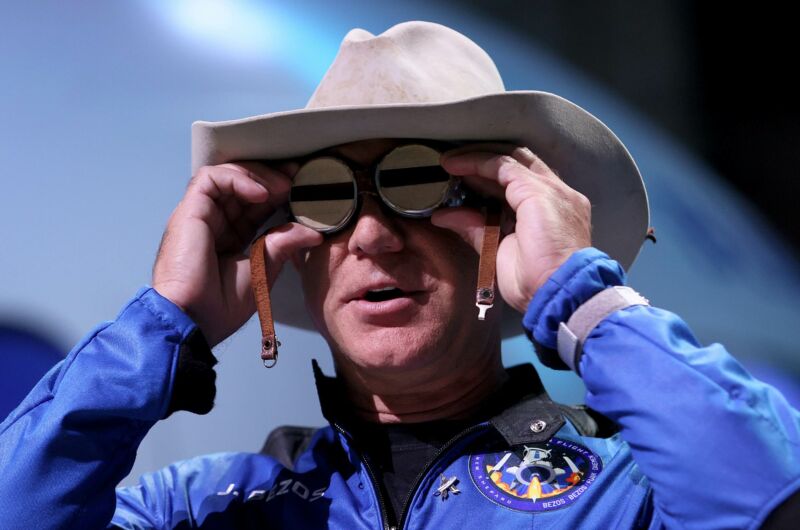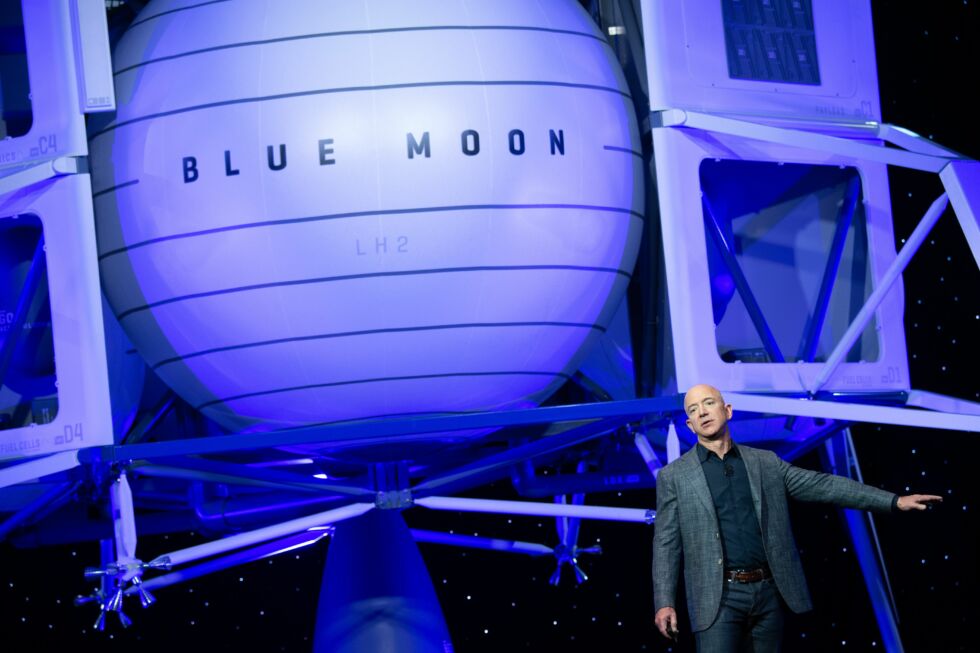Here’s why Blue Origin thinks it is justified in continuing to protest NASA

Blue Origin has chosen to continue fighting NASA’s selection of SpaceX to build a Human Landing System as part of the Artemis Moon Program.
The company filed suit in the US Court of Federal Claims on Friday and received a protective order to seal the documents on Monday. The lawsuit follows a decision in late July by the US Government Accountability Office that rejected a protest by Blue Origin and Dynetics over NASA’s $2.9 billion award to SpaceX to further development of its Starship program.
The new lawsuit escalates Blue Origin’s feud with NASA. As recently as last week, senior leaders at NASA and Blue Origin were in talks to forestall such a lawsuit. NASA would still like to include Blue Origin in its Artemis Program, a source familiar with those talks said. However, the space agency does not appear to have come to an agreement with the company .
“We firmly believe that the issues identified in this procurement and its outcomes must be addressed to restore fairness, create competition, and ensure a safe return to the Moon for America,” Blue Origin said in a statement about its latest protest filing.
NASA said it was aware of the lawsuit and that the space agency was reviewing its details. In a statement, the agency said:
NASA is committed to the Artemis program and the nation’s global leadership in space exploration. With our partners, we will go to the Moon and stay to enable science investigations, develop new technology, and create high paying jobs for the greater good and in preparation to send astronauts to Mars. As soon as possible, the agency will provide an update on the way forward for returning to the Moon as quickly and as safely as possible under Artemis.
Blue Origin’s actions in court—in addition to its ham-handed release of infographics that seek to denigrate SpaceX but have been widely mocked within the space community—are having a negative effect on both the company’s relationships with the US government and its own employees.
“They will never get a real government contract after this,” one NASA source predicted, following the lawsuit filing. The sentiment may be similar at the US Space Force, which is frustrated by delays in the delivery of BE-4 rocket engines for United Launch Alliance’s Vulcan rocket.
These tactics have also alienated some of Blue Origin’s work force. Several employees have told Ars that they are appalled by their corporate leadership’s decision to attack both NASA and SpaceX in the wake of the lunar lander contract decision.
One user who identified as a Blue Origin employee took to reddit on Monday to express the frustrations of some, if not a majority, of people working at the Washington state-based company. “I personally believe that the vast majority of the company’s employees do NOT agree with the infographics and other PR stunts that the company’s leadership has been pushing,” the employee wrote. “I have not met a single one that does feel this way. In fact, most of us are rather disgusted and embarrassed to be represented in this manner.”
There are concerns that Blue Origin’s aggressive attitude toward the Human Landing System contract will drive key employees away as morale drops. On Monday, for example, a senior engineer on Blue Origin’s Human Landing System project, Nitin Arora, announced on LinkedIn that he is leaving the company to work at SpaceX. “Next stop, SpaceX! I am incredibly excited and looking forward to it,” he wrote.
So what is Blue Origin’s motivation behind the latest lawsuit?
Internally, the company has not shared much information with its employees. However, to the extent it has offered a justification, Blue Origin contends that NASA made an unfair decision. The company told its employees that its primary objection stems from that fact that NASA said at the outset of the lunar lander bidding process that price was not the most important consideration. To the contrary, Blue Origin believes that the space agency selected only SpaceX, rather than multiple bidders, because SpaceX offered the lowest bid.
The US Government Accountability Office soundly rejected this argument, however. The GAO’s decision document says NASA was entirely justified in selecting a single winner for the lunar lander bid because Congress appropriated only about one-quarter of the funds sought by the space agency. NASA, the document states, “expressly put all offerors on notice that the number of awards was subject to available funding, and the agency could make multiple contract awards, a single award, or no award at all.”

SpaceX’s bid was substantially lower than that of Blue Origin, about 50 percent less, because SpaceX offered to fund the majority of Starship’s development. By contrast, Blue Origin only offered to put $2 billion of its own funding into its Human Landing System project months after NASA made its final selection.
Blue Origin founder Jeff Bezos also feels like his company deserves an award, one source said, for long-time lobbying in support of a human return to the Moon. Bezos believes that his advocacy for a lunar lander to the Trump administration, in 2017, eventually led NASA toward initiating the program. “He feels like, without Blue Origin, there would be no HLS program,” the source said.
The irony is that Bezos knows exactly what impact this is having on NASA’s plan to return to the Moon in a timely manner. During a talk on the 50th anniversary of the Apollo 11 Moon landing in 2019, Bezos spoke about lunar lander contracting at the JFK Library during the JFK Space Summit. At the time, he must have been confident that Blue Origin would win one of NASA’s lunar lander awards.
“Today there would be, you know, three protests and the losers would sue the federal government because they didn’t win,” Bezos said. “And so it’s very interesting. The thing that slows things down is procurement. It’s become the bigger bottleneck than the technology.”
https://arstechnica.com/?p=1787516